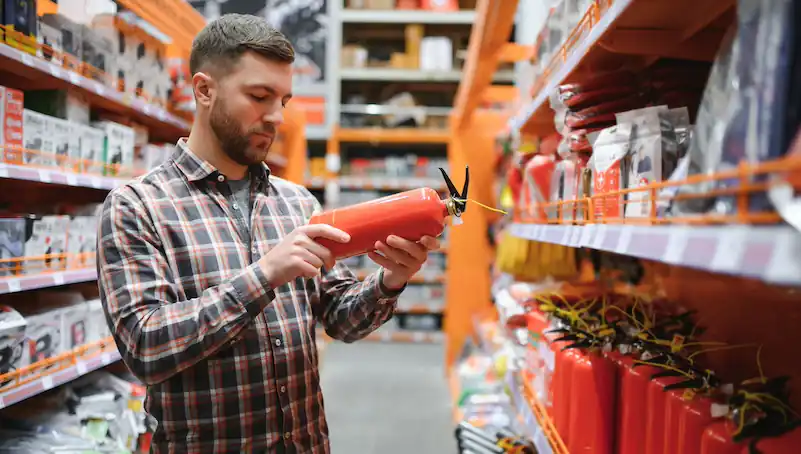Every 23 seconds, a fire department responds to a fire. Fear of fire at your small business is justified. And prevention, as well as commercial fire insurance, could help.
Get a few tips on fire safety and prevention in under a minute here:
Learn what commercial fire insurance is, what it covers and what it costs to help protect your small business.


Every 23 seconds, a fire department responds to a fire. Fear of fire at your small business is justified. And prevention, as well as commercial fire insurance, could help.
Get a few tips on fire safety and prevention in under a minute here:
A lot of commercial fire insurance protection comes from the right commercial property insurance. But when you dig into the details of fire insurance for your small business, you may need to go beyond a commercial property policy.
Jump ahead to learn:
Commercial fire insurance helps provide financial reimbursement for fire-related damage to your small business.
A commercial fire policy package may include coverage for:
Typically, commercial fire insurance isn’t a single policy. Many people think of commercial property insurance when they think of coverage for fires. However, there are other types of business insurance that can also provide protection.
Commercial fire insurance could include:
Commercial property insurance can protect the physical assets in your business that you own, including structures, inventory, equipment and other business property.
Many commercial property insurance policies let you choose between being reimbursed the actual cash value (which is the depreciated value of lost/damaged items) or the replacement value (also called replacement cost) that helps cover the cost of brand-new items. On most policies, you will pay a higher premium for a replacement value policy.
Commercial general liability insurance can cover injuries to customers and other non-employees if they’re injured in a fire. It can also help protect from damages to your neighbor’s property if a fire starts on your property.
A business owner’s policy, also known as BOP insurance, undles general liability insurance and commercial property insurance into one policy. This coverage works well for many small business owners because it protects your business property and your business from some liability.
If a covered fire-related event forces you to close your business for repairs, and your business carries business income insurance, you may also be able to recover lost income.
Here’s what can typically be covered by business income insurance:
Business income insurance usually has a set period of restoration, which means your policy gives you a fixed amount of time to make repairs.*
In addition to just carrying insurance, there’s a lot a business owner can do to help prevent fire risk at work.
You can do a lot to reduce the fire risk of your business. Here are a few tips to get you started.
Typically, you buy commercial fire insurance through commercial property insurance. You can purchase commercial property coverage for as little as $17 monthly.†
Many factors affect the cost of commercial fire insurance, including:
Yes. Commercial fire insurance is often included with commercial property insurance. Commercial property insurance protects the physical assets that you own in your business, including structures, inventory, equipment and other business property.
Consider additional coverage for more well-rounded fire protection. General liability can help protect from third-party injuries and damages. You may also want to consider a business owner’s policy (BOP insurance) to bundle commercial property and general liability into a single package that’s often more affordable than two standalone policies.
You should also consider the aftereffects of a fire. Can your business weather the financial losses and rebuild time to rebound? If not, business income insurance may be right for you.
NEXT helps small business owners get the right commercial fire insurance.
Answer a few questions about your business, location, the type of work you do and how much coverage you want. Choose your coverage options, get an instant quote and buy online — all in about 10 minutes.
Your certificate of insurance is available immediately, and you can always access it and your policy 24/7 via web or mobile app.
If you have questions, our licensed, U.S.-based insurance professionals can help.